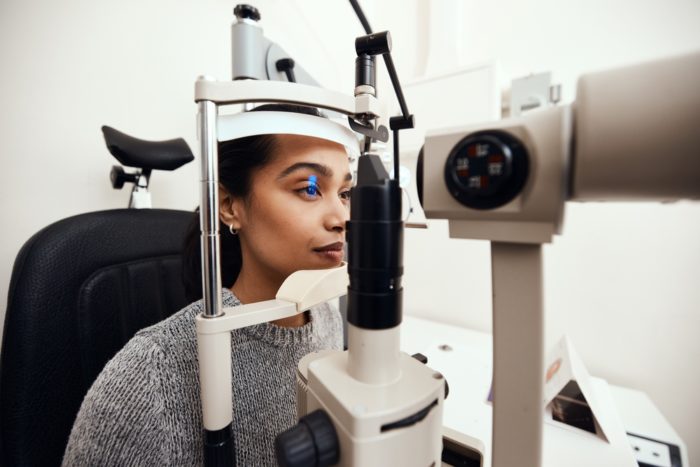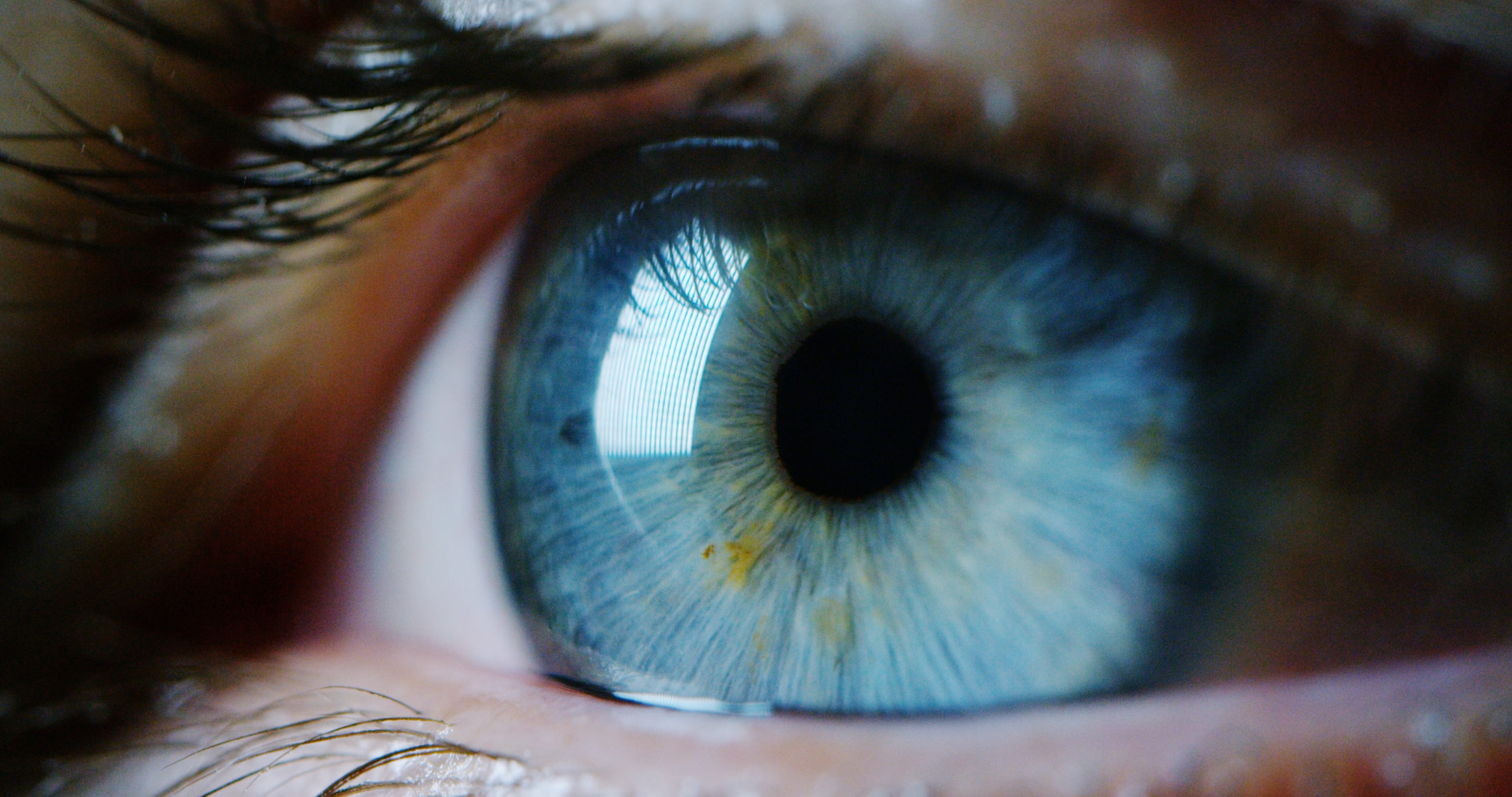
Get your eyes tested and save your vision
March 3rd, 2023March is National Save Your Vision Month, and the message from opticians is to get your eyes tested and save your vision! The vision experts have good reason to keep reminding us because eye health statistics are eye-opening. The UK population is just over 67 million 2 million of those have sight loss, and around 3 in 5 Americans have some form of vision or eye problems, including disease and blindness.
The event this month isn’t the only opportunity for eye experts to reinforce that people should protect their eyes at all costs. Other events include Workplace Eye Awareness Month, National Eye Week and World Sight Day.
You and your ageing eyes
As you age, it is usual to notice changes in your vision. Losing the ability to see up close, trouble distinguishing colours and needing more time to adjust to changing levels of light. By age 40, you start to lose the ability to focus, this condition is called presbyopia, and everyone develops it at different rates. As the years go on, issues such as inconsistent focus or floaters can appear in your vision. From age 60, there is a likelihood that you will start to experience macular degeneration, retinal detachment, cataracts or glaucoma. All of which you can receive some form of treatment for, this is why it is vital to find any issues early on through an eye test.
We don’t have the ability to see into the future, but things are starting to look good for eye health with pioneering research.
A recent article published by Technology Networks (originally from the University of Virginia) has raised the idea of a new target that could help researchers to prevent vision loss – a previously unknown contributor to blood vessel growth in the eyes that could be harmful has been discovered. This will lead to further research into treatments for common causes of vision loss and blinding macular degeneration.
This previously unknown contributor is in essence an abnormal tarngle of blood vessels – the new target identified by researchers including UVA’s Jayakrishna Ambati, MD, and Shao-bin Wang, PhD will work to prevent the formation of this “tangle”. By preventing this from occurring the risk of conditions such as diabetic retinopathy, ischemic retinal vein occlusion and neovascular age related macular degeneration.
“Our study has opened up the possibility of mitigating aberrant blood vessel growth in eye diseases by targeting the epigenetic machinery,” said Ambati, the founding director of UVA’s Center for Advanced Vision Science and a member of the University of Virginia School of Medicine’s Department of Ophthalmology. “Through local targeting of the epigenetic regulator, we have gained a deeper understanding of how ocular immune cells can cause a loss of control over blood vessel growth under the retina. This approach also offers a new direction for the development of more effective, cost-efficient and accessible interventions, thereby avoiding issues such as drug resistance, which is a growing concern with conventional anti-VEGF therapies used in clinical treatments.”
Read the full article here.
Opticians look beyond the lens of the eyes
There are many reasons why a person can have or develop eye problems, visual impairment or blindness. Eye conditions can be genetic, the result of a disease, or it could be because of an accident.
Visiting an optician isn’t just to help you see more clearly but also to see if there could be any underlying health conditions – your eyes can tell you a lot about yourself.
An optician looks for abnormalities in the eye’s internal and external structure to detect glaucoma, macular degeneration, and cataracts and assess a person’s ability to focus, read, coordinate and see the depths of colours.
More in-depth tests can pick up signs of eye trauma, diabetic eye conditions such as diabetic retinopathy, and congenital or genetic eye problems. Opticians can detect high blood pressure, thyroid disease, rheumatoid arthritis, high cholesterol, and brain tumours.
Are you ready to do the best for your eyesight?
Most people will suffer from eye strain because we live in a digital world. The average person is estimated to spend approximately 7 hours a day using some form of electronics – mobile phones, computers, laptops and TVs.
When you stare at a screen, you blink your eyes 3 times less than normal and between blinks, your eyes start to dry up and become very uncomfortable. To combat the problem, experts recommend that you use the 20-20-20 rule. Every 20 minutes, you should take a break from looking at the screen and look at something else 20 feet away for 20 seconds.
Here are 11 more suggestions for good eye health:
- Eat a healthy diet with specific foods that are good for your eyes.
A poor diet can put your eye health at risk. Vitamins, minerals and carotenoids found in many fruits and vegetables and other wholesome foods can help protect your vision. Your diet should include the following foods:
- Fish
The nutrients from cod, tuna and sardines is recommended for the structural support of cell membranes.
- Blueberries and grapes
These two fruits contain anthocyanins which help to improve night vision.
- Green leafy vegetables
Spinach and kale are rich in carotenoids which help to prevent eye-related disease.
- Whole grains and avocados
They contain zinc and vitamin B that helps to reduce the risk of cataracts or macular degeneration.
- Papaya
The fruit contains beta-carotene that helps prevent free radical damage inside the eye.
- Eggs
Eggs contain cysteine, sulphur, lecithin, amino acids and lutein which help to prevent cataracts.
- Garlic, onions, shallots and capers
These vegetables contain sulphur which is a good antioxidant for healthy eyes.
- Soy
Soy contains fatty acids phytoestrogens and vitamin E, it’s a natural anti-inflammatory agent.
- Get a good night’s sleep.
Sleeping is important for many reasons, including your eye health. It helps your eyes get the moisture and lubrication that they need. During sleep, your eyes remove irritants such as dust or allergens that may have accumulated during the day.
- Take regular exercise.
A lack of exercise can contribute to several eye conditions. Sight loss can come from narrowing or hardening of the arteries, increasing the chance of circulatory problems, blood pressure and diabetes, all of which can affect eye health – so keep moving!
- Cut back on alcohol.
Drinking too much alcohol can lead to some health problems that can have a detrimental effect on eye health. It is recommended that men and women shouldn’t drink more than 14 units a week and should have some drink-free days.
- Give up smoking.
After ageing, smoking is the biggest risk factor for developing macular degeneration. Smoking also increases the risk of developing cataracts. A person is 2-3 times more likely to get cataracts if they smoke.
- Use sun protection.
Ultraviolet light from the sun can damage the eye. Protecting the eyes from the sun is very important. You should never look directly into the sun and where sunglasses that give you the right level of protection.
- Wear protective goggles.
It is important to wear goggles when working with liquids, vapours or chemicals that can splash and potentially go into the eyes. Using equipment to chop or cut materials can result in chippings or dust particles going into the eyes.
- Use good hygiene practices with contact lenses.
Using contact lenses can increase the risk of eye problems. There is more chance of developing corneal ulcers which left untreated can result in blindness. It’s important to keep the lenses clean or the eyes can get irritated causing grittiness, burning and redness.
- Care for your eyes when wearing eye makeup.
Don’t share eye makeup because bacteria and germs spread. It is recommended that you don’t wear eyeliner inside the eye as there is a risk of scratching the eye. Eye makeup can also block oil glands leading to dry eyes.
- Keep your fingers out of your eyes.
Only remove something from your eye with clean fingers. Dirty fingers can spread bacteria across the eye. Pressure from the finger can also scratch the cornea. If you have irritation, flush the eye with an eye-cleaning solution or water.
- Treat dry eyes.
Severe eye dryness can lead to eye inflammation, abrasion of the corneal surface, corneal ulcers and vision loss. To treat dry eyes we highly recommend our product Can-C™ (N-Acetylcarnosine eye drops). It normalises cataract impairment, without surgery. Users and Scientists have reported that Can-C is also great for:
- Dry eye syndrome
- Contact lens lubricant
- Corneal disorders
- Computer vision syndrome
- Eye strain
- Ocular inflammation
- Blurred vision
- Presbyopia
- Retinal diseases
- Vitreous opacities and lesions
- Complications of diabetes mellitus and other systemic diseases
- Open-angle primary glaucoma.
We must fight for our sight because sight is one of the most valued senses. Reading or prescription glasses, contact lenses or surgical techniques can help us see more clearly but with a natural fear of losing sight, your annual goal should be going for a vision check-up. Book your appointment today!
References
- https://www.wheelingeyecare.com/7-serious-health-issues-an-eye-exam-can-detect/
- https://www.nhs.uk/nhs-services/opticians/visiting-an-optician/#:~:text=An%20optometrist%20is%20trained%20to,see%20depth%20and%20colours%20accurately
- https://www.visionmatters.org.uk/looking-after-your-eyes/looking-after-your-eyes
- https://www.cdc.gov/vision-health/data-research/vision-loss-facts/
- https://www.doughertylaservision.com/vision-blog/how-contacts-can-be-harmful-to-your-eyes/#:~:text=According%20to%20the%20Food%20and,%2C%20in%20rare%20cases%2C%20blindness
- https://www.nhs.uk/conditions/vision-loss/#:~:text=In%20the%20UK%2C%20more%20than,as%20blind%20or%20partially%20sighted
- https://www.cdc.gov/tobacco/campaign/tips/diseases/vision-loss-blindness.html#:~:text=Smoking%20causes%20changes%20in%20the,people%20who%20do%20not%20smoke.&text=You%20are%20two%20to%20three,people%20who%20do%20not%20smoke
- https://www.papaleeyecenter.com/k-stop-right-properly-remove-something-eye/#:~:text=Don’t%20Use%20Your%20Fingers&text=Dirty%20fingers%20can%20spread%20bacteria,fingers%20can%20scratch%20your%20cornea
- https://www.mayoclinic.org/diseases-conditions/dry-eyes/symptoms-causes/syc-20371863#:~:text=If%20left%20untreated%2C%20severe%20dry,everyday%20activities%2C%20such%20as%20reading
- https://www.technologynetworks.com/neuroscience/news/a-new-target-could-help-researchers-prevent-vision-loss-370591
- https://workplaceinsight.net/working-from-home-how-to-look-after-your-eyes/







